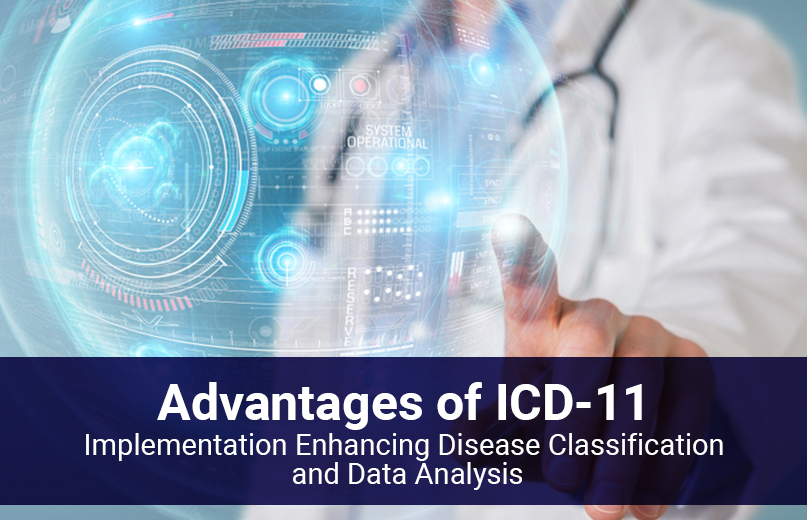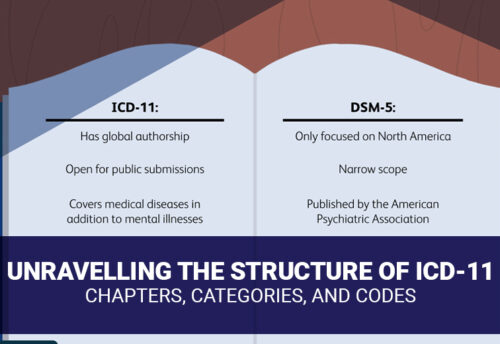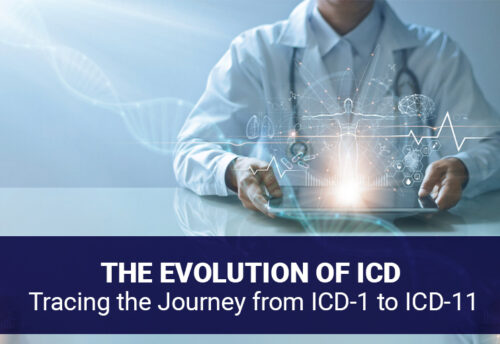
Advantages of ICD-11 Implementation: Enhancing Disease Classification and Data Analysis
Introduction
In the intricate world of healthcare, precise disease classification and accurate data analysis are pivotal for effective patient care, research, and policy-making. The advent of the International Classification of Diseases, 11th Revision (ICD-11), marks a significant leap forward in these areas. This article delves into the advantages of adopting ICD-11, highlighting how its implementation enhances disease classification, data analysis, and ultimately, the decision-making process in healthcare.
Improved Disease Classification:
Precision in the Diagnosis of ICD-11 brings a higher level of granularity and specificity to disease classification. This precision allows healthcare professionals to accurately diagnose and document a wide range of conditions. The detailed categories and codes cater to diverse medical scenarios, ensuring that diseases are classified with accuracy and nuance. This specificity contributes to tailored treatment plans, reducing the risk of misdiagnosis and enhancing patient outcomes.
Enhanced Data Analysis:
Better Insights The detailed structure of ICD-11 translates into more comprehensive and accurate data collection. As healthcare providers input standardized codes for various conditions, data becomes richer and more meaningful. This wealth of information fuels data analysis, providing researchers, epidemiologists, and policymakers with deeper insights into disease prevalence, trends, and associated factors. Better data analysis informs evidence-based decisions and resource allocation.
Global Standardization:
Consistency and Collaboration ICD-11 offers a globally recognized standard for disease classification. This consistency in terminology and coding fosters collaboration across international healthcare communities. Whether for research, clinical trials, or reporting disease outbreaks, the uniformity provided by ICD-11 enables seamless communication and comparison of data across different regions, contributing to a more comprehensive understanding of health challenges on a global scale.
Informed Healthcare Policies:
Targeted Interventions Accurate disease classification and robust data analysis empower policymakers to make informed decisions. By understanding disease prevalence, risk factors, and trends, healthcare authorities can devise targeted interventions to address specific health issues. This approach promotes efficient resource allocation and strategic planning, leading to more effective public health campaigns and healthcare policies.
Research Advancements:
Advancing Medical Knowledge ICD-11’s detailed classification structure aids researchers in uncovering patterns, correlations, and insights that can shape medical knowledge. Researchers can delve deeper into specific disease categories, studying their impact, causes, and outcomes. The enhanced data granularity facilitates the identification of rare diseases, emerging health concerns, and potential treatment breakthroughs.
Conclusion: A New Era of Healthcare Insights
The adoption of ICD-11 brings a multitude of advantages that ripple through the healthcare landscape. From improved disease classification and enhanced data analysis to its impact on informed healthcare policies and research advancements, ICD-11 serves as a beacon of precision and collaboration. As the healthcare industry continues to evolve, the implementation of ICD-11 cements its role as a transformative tool that empowers professionals to make better-informed decisions, ultimately enhancing patient care and the overall well-being of communities worldwide.



Leave a Comment